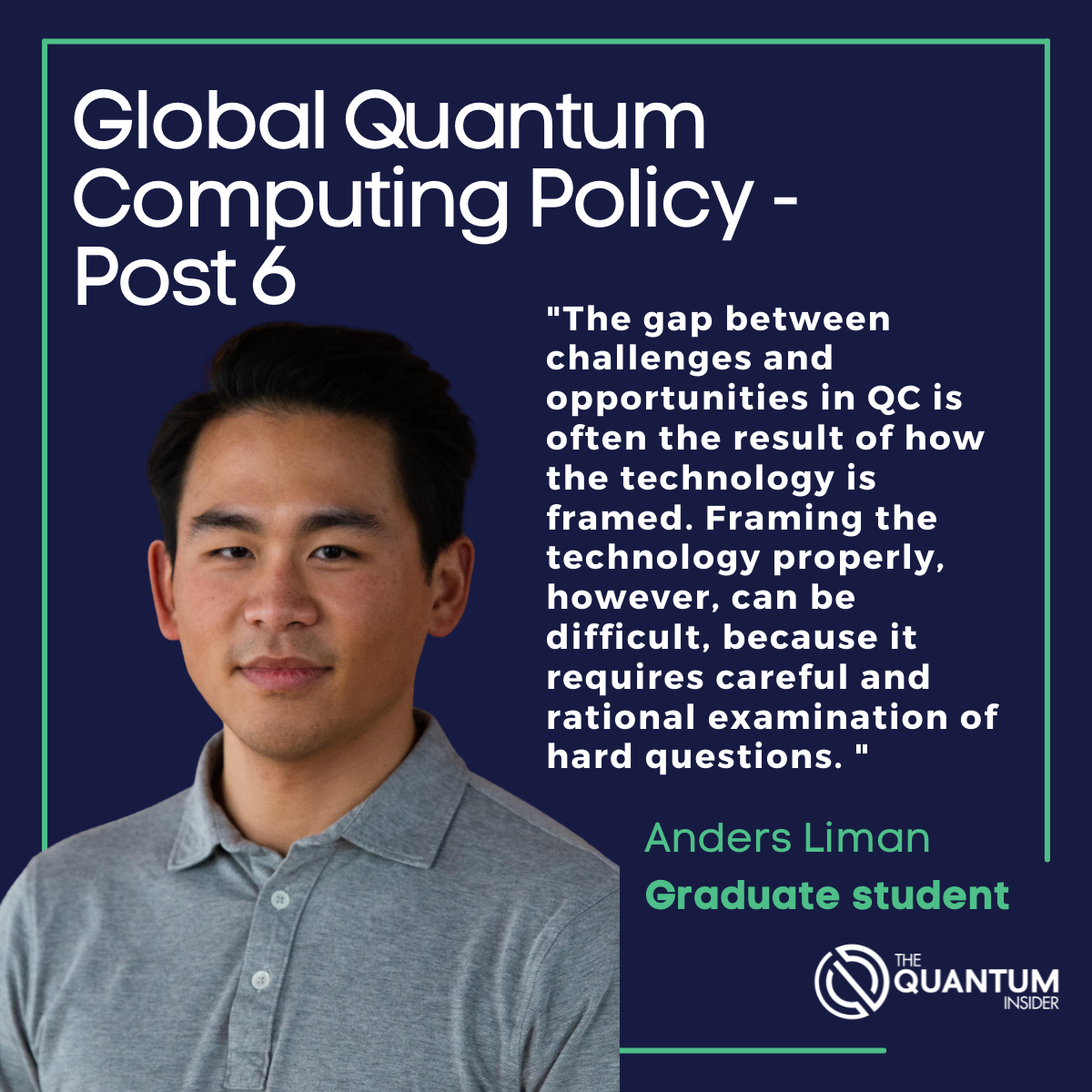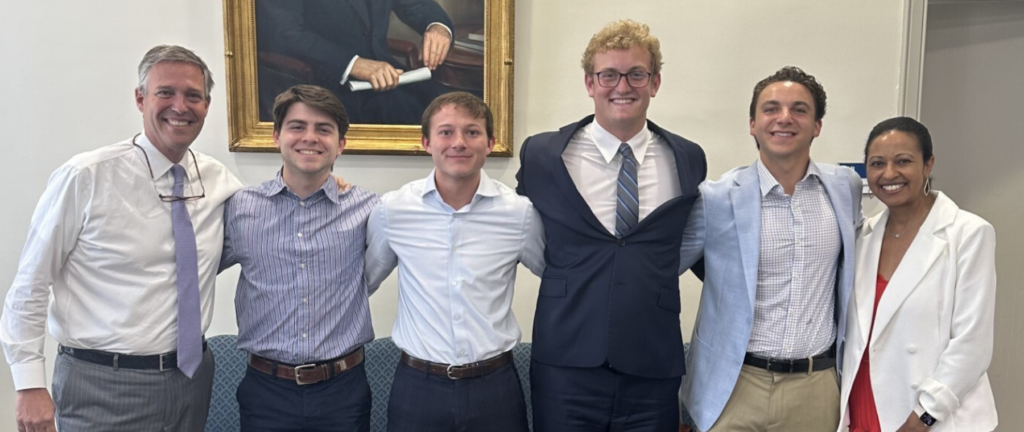My name is Anders Liman. I’m a graduate student studying Tech Ethics and Science Policy at Duke University. I also hold a master’s in Computer Science from North Carolina State University. This summer, as part of a collaboration between Duke and Google, I researched the global quantum computing landscape in an effort to identify engagement challenges and opportunities in the field. This blog series is the fruit of this labor. You can find all the posts in the series written here:
Post 1 – Researching the global quantum computing landscape in an effort to identify engagement challenges and opportunities in the field
Post 2 – How scientific innovation and economic potential drive academic and industry efforts in quantum computing
Post 3 – How national security and digital sovereignty motivate governmental efforts in quantum computing
Post 4 – Competing interests, competing ideals, and unwanted hype in quantum computing, and ways to address them
Post 5 – Identifying NISQ applications, addressing workforce gaps, and developing future workforce in quantum computing
Post 6 – Properly framing quantum computing and setting appropriate expectations
The Gap: Setting appropriate expectations
The gap between challenges and opportunities in QC is often the result of how the technology is framed. Framing the technology properly, however, can be difficult, because it requires careful and rational examination of hard questions. What if QC fails? What if it does not deliver on its promises? What if QC R&D takes so long to become commercially viable that the investments dry up? What if its negative impacts outweigh the positive ones? These are questions that garner (comparatively) little attention when discussing QC. However, these are important considerations that require levelheadedness and a fair understanding of the technology. In fact, answering these questions may help us better identify other challenges and opportunities in the field.
QC may follow the footsteps of cloud computing and deliver on all its promises and more; or it may follow the footsteps of 3D printing and underdeliver. Cloud computing is undoubtedly a great technology that revolutionized the whole information technology ecosystem and business model. 3D printing is wonderful, too. It has provided new possibilities in the medical industry including orthopedics, surgical implants, and custom surgical instruments. However, compared to the promise (widely disseminated by its early adopters) of every household owning a 3D printer and creating everything imaginable according to its needs, the technology appears somewhat underwhelming.

In the field’s relative infancy, it is unclear which path QC will take. QC optimists believe QC will replace classical computing altogether. QC pessimists are doubtful of its usefulness outside of academic contexts, at least for the foreseeable future. What is clear though, is that improperly framed, QC could repeat the mistakes of the 3D printing industry. However, if aptly framed, QC could achieve and materialize the appropriate expectations put on it.
Conclusion
Despite its relative infancy, many stakeholders from academia, industry, and government are involved and invested in QC research and development (R&D) efforts. These efforts are broadly motivated by scientific innovation, economic potential, national security, and digital sovereignty. Different stakeholders often emphasize some combination of these motivations to varying degrees.
Furthermore, effective QC R&D and related policies pose challenges such as balancing competing interests and ideals, moderating hype, identifying commercially-relevant applications, and addressing workforce gaps. Correspondingly, they present opportunities such as fostering cross-sector and international partnerships, engaging in public education, developing meaningful common standards, facilitating interdisciplinary collaboration, and promoting workforce development.
Ultimately, a proper and apt framing of the technology is integral to setting appropriate expectations and realizing the promises of QC.
Previously
Post 1 – Researching the global quantum computing landscape in an effort to identify engagement challenges and opportunities in the field
Post 2 – How scientific innovation and economic potential drive academic and industry efforts in quantum computing
Post 3 – How national security and digital sovereignty motivate governmental efforts in quantum computing
Post 4 – Competing interests, competing ideals, and unwanted hype in quantum computing, and ways to address them
Post 5 – Identifying NISQ applications, addressing workforce gaps, and developing future workforce in quantum computing
Acknowledgements
The author would like to express sincere gratitude to the following organizations and individuals for their valuable insights which prove integral to the creation of this blog series: Google Quantum AI team, Google Government Affairs and Public Policy team, Thomas Monz (AQT), Christina C. C. Willis (ColdQuanta), Lamont Silves (IonQ), Ken Brown (Duke University), Jonathan Felbinger (QED-C / SRI International), Carl Williams (CJW Quantum Consulting), Matt Trevithick (DCVC), and David Moehring (Cambium Capital).
The author would also like to express sincere gratitude to the following individuals for their support and counsel throughout the research: Kate Weber (Google), Ashley Zlatinov (Google), Charina Chou (Google), Lee Tiedrich (Duke University), and Buz Waitzkin (Duke University).
If you found this article to be informative, you can explore more current quantum news here, exclusives, interviews, and podcasts.


















